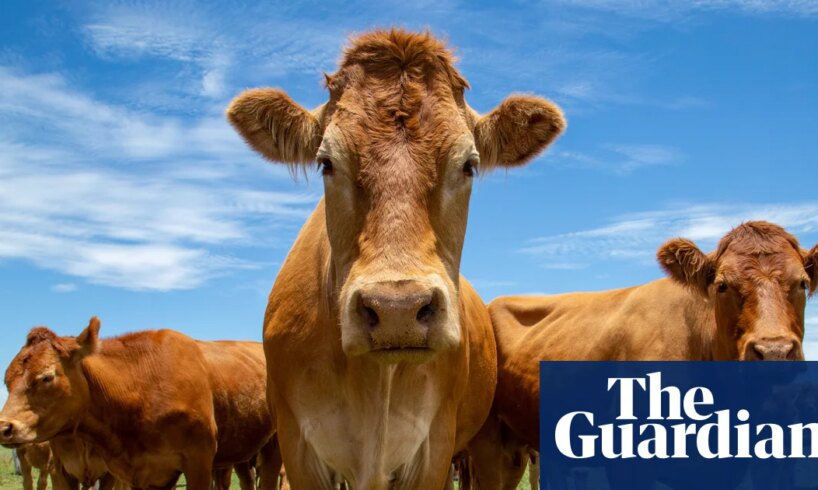
The Australian government has welcomed the Trump administration’s removal of tariffs on beef and other agricultural exports to the US.
After previously insisting his import duties were not fuelling inflation, the US president, Donald Trump, on Saturday morning Australian time signed an executive order reversing tariffs on food imports including beef, coffee and bananas.
Trump, who is facing pressure over rising consumer prices, conceded in the order that “current domestic demand for certain products, and current domestic capacity to produce certain products” had influenced the decision.
Last year, meat was the Australia’s second largest export to the US, behind only non-monetary gold. Since Trump’s tariff regime came into effect in April, Australian producers have been charged a 10% export duty on most goods, including beef.
The Cattle Australia chief executive, Will Evans, who welcomed the tariffs’ removal, said Australia exported about $4bn worth of beef to the US each year.
The trade minister, Don Farrell, said the government had maintained that tariffs were “an act of economic self-harm” that ultimately affected American consumers who were paying for the tariffs through higher retail prices.
Sign up: AU Breaking News email
“We welcome the removal of tariffs on Australia’s world-class agricultural exports, including beef,” he said.
“We maintain our position that tariffs on any Australian products are unjustified, and continue to advocate for their removal.”
Angus Gidley-Baird, a senior analyst at Rabobank, noted the tariffs have given Australian producers an advantage over countries who also export a significant amount of beef to the US but have been subjected to much higher duties, such as Brazil.
Nevertheless, Gidley-Baird said Australian beef producers wouldn’t see too much of a change in demand, at least in the short term, because the US market “is so strong and their local production is so slow” after drought conditions in 2022 and 2023.
“For us the bigger question is the longer term – if the tariffs [are reintroduced] and the US rebuilds its herd and its production,” he said.
Richard Holden, a scientia professor of economics at the University New South Wales business school, said people weren’t wrong to observe that if other countries were hit with higher tariffs it “might be relatively better” for Australia.
“But we’ve seen that the Trump administration’s tariffs have really shrunk the overall global trading system that’s served all countries, particularly Australia, so well,” he said.
“So anything that pushes back towards where we were in terms of free trade is really good for everyone, Australia included.”
In 2024, the US was the fifth largest destination for Australian goods, with $23.8bn of exports, and the second largest trading partner for imports, with $50.5bn of products received.
Jenny Gordon, an honorary professor at the ANU and a former chief economist at the Department of Foreign Affairs and Trade, said because Australia was in a trade deficit with the US, the tariffs didn’t have a large direct effect on the local economy.
“What we’re more concerned about is that indirect effect on our economy,” she said. “Anything that’s in that right direction, we’re grateful for.”
Gordon pointed to the recent sweep of Democratic party victories in state and local elections as evidence US voters were “realising [Trump’s] tariff policy is not driving down the cost of living”.
John Quiggin, a professor of economics at the University of Queensland, said the Australian beef industry had probably benefited on balance from the tariffs because they were lower than those imposed on other major exporters.
“But it’s better not to have an administration that just uses tariffs more or less randomly as public policy,” he said.





